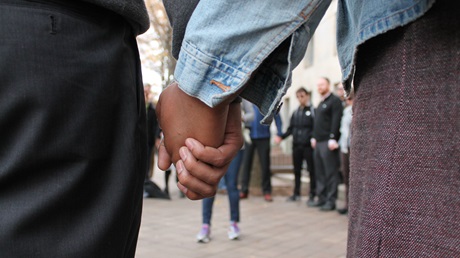After Minneapolis, Baton Rouge, and Dallas, can we transcend optimism or despair?

After the killing of two African-Americans this week, followed by the murder of five Dallas police officers, one strives to find something new to say. Right now the mind is clouded and confused, and the heart is heavy, first and foremost, for the family and friends of these victims.
But the heart is also heavy because we are just so tired of our nation’s racial divide. And we’re discouraged because what we want to see is so hard to achieve. As Christians we aim for nothing less than racial reconciliation, but we know that this cannot come without racial justice. And if justice is so hard to achieve, how much harder reconciliation?
We’re tempted at such times to go in one of two directions. One part of us wants to let loose our righteous outrage and double down on our efforts. But we know that commitments made in the midst of a tragedy rarely amount to much. If we are driven by emotion, when the emotion fades, so will our commitment. Our commitment to justice and reconciliation must have a more secure footing.
Another part of us wants to just give up. So many people are working so hard on this already and things seem to be getting only worse.
But here is precisely where we can see a way forward, beginning with justice.
The shootings this week cut the legs out from under naïve hope. We Americans are habitual optimists, believing that if we just make race a priority, if we expose every act of injustice, if we make demands high and low, then justice will come and racism will evaporate, certainly within our lifetime. Facts are stubborn things, and they show us that justice is harder to achieve than we’re apt to admit. No one understands this better than the black community, and recent events have only …


